UNDP’s Dubious Appointments Threaten Integrity of Nepal’s Global Fund

Kathmandu, Nepal — The United Nations Development Programme (UNDP), a key player in Nepal’s public health initiatives, stands accused of undermining critical Global Fund projects through a pattern of arbitrary appointments, prioritizing questionable credentials and political influence over merit and competence. This revelation has sent ripples of concern through government circles and among public health experts, raising serious questions about the integrity of international aid and the future of Nepal’s health system.
The Global Fund program, designed to combat HIV, tuberculosis, and malaria, has plunged into disarray since the Nepali government and UNDP assumed joint Principal Recipient (PR) roles for its seventh cycle. This decision, intended to streamline operations following a period of assertive dominance by Save the Children, appears to have backfired, with government officials now expressing alarm over UNDP’s management practices.
An investigation by Swasthya Live has unearthed a disturbing trend: UNDP’s rapid recruitment drive for the Global Fund project has seemingly abandoned the principles of meritocracy. Instead, appointments are reportedly being based on “controversial, unrelated, and even fraudulent credentials.” Shockingly, some individuals brought into the program have even faced scrutiny or penalties from Nepal’s Central Investigation Bureau (CIB).
One glaring example cited by critics is the appointment of Ayusha Dhungel as a Laboratory Analyst. Despite the highly technical and sensitive nature of the role, Ms. Dhungel’s background is in Biotechnology, not medical diagnostics or public health laboratory work. She reportedly lacks any experience with TB, HIV, malaria, or Nepal’s complex laboratory systems, prompting bewilderment among seasoned professionals.
“There are plenty of qualified experts across Nepal with experience in TB, HIV, malaria, and public health laboratories,” lamented an official, who spoke on condition of anonymity due to the sensitivity of the matter. “UNDP appears to be prioritizing unrelated and less qualified individuals over such experts. This suggests an intention to turn the program into a recruitment hub for unqualified people rather than strengthening it effectively.”
Compounding the issue, sources suggest UNDP may be exploiting the situation to place controversial figures in high positions, particularly as USAID funding diminishes. This alleged maneuver has sparked “serious dissatisfaction” during consultations with directors from key national health institutions, including the National Public Health Laboratory (NPHL), National Tuberculosis Control Center (NTCC), National Centre for AIDS and STD Control (NCASC), and the Epidemiology and Disease Control Division (EDCD). Dr. Ranjan Bhatt, Director of NPHL, confirmed the gravity of the situation, calling for immediate discussions to address the deepening crisis.
Adding to the controversy, UNDP is also accused of reinstating individuals previously deemed unfit for their roles. Sujan Onta, for instance, had been dismissed by Save the Children due to “poor performance, incompetence, and management dissatisfaction.” Yet, he has now been reinstated by UNDP in a decision-making capacity, an action that critics say underscores a severe lack of managerial competence within the organization, a blatant disregard for transparency, and an alarming preference for political recommendation over merit.
The transparent management of international grants like the Global Fund is paramount for a developing nation like Nepal. However, government officials fear that UNDP’s current appointment processes and operational style pose a “serious threat to technical balance and accountability under the guise of health system strengthening.”
This escalating crisis extends far beyond individual appointments. It touches upon the very foundation of Nepal’s health system, the ethical application of international aid, and the fundamental health rights of the Nepali people. The unfolding events demand immediate scrutiny and a comprehensive investigation to ensure that no foreign agency operates without accountability in Nepal’s vital health sector.
क्याटेगोरी : English, अन्तर्राष्ट्रिय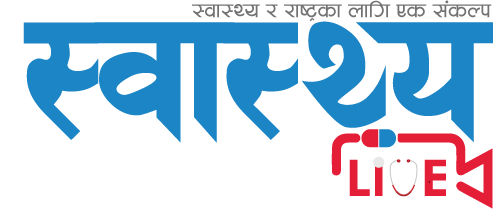

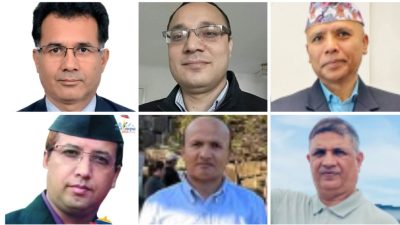
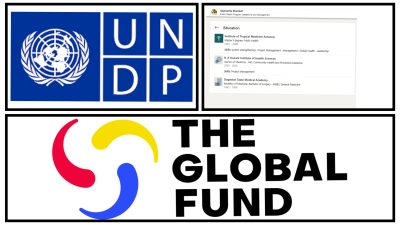
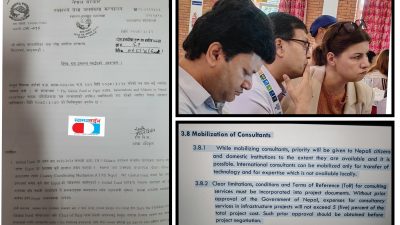

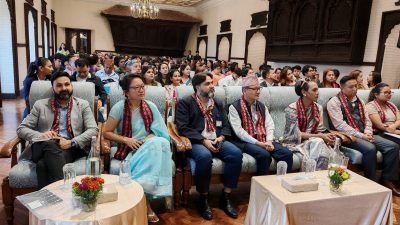


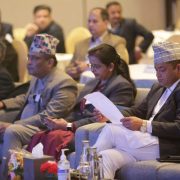
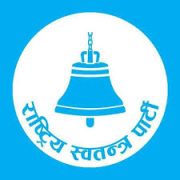
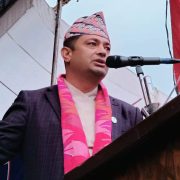

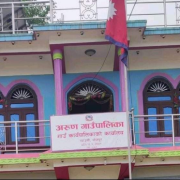
तपाईको प्रतिक्रिया दिनुहोस